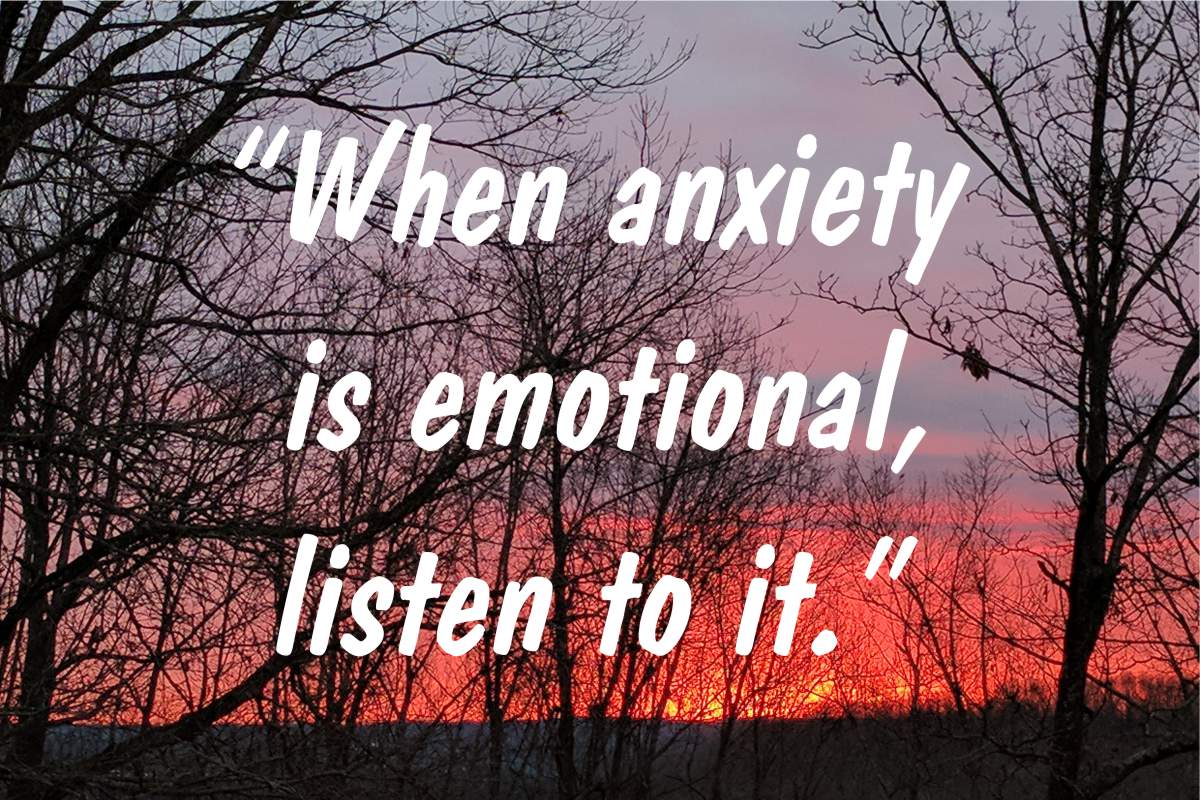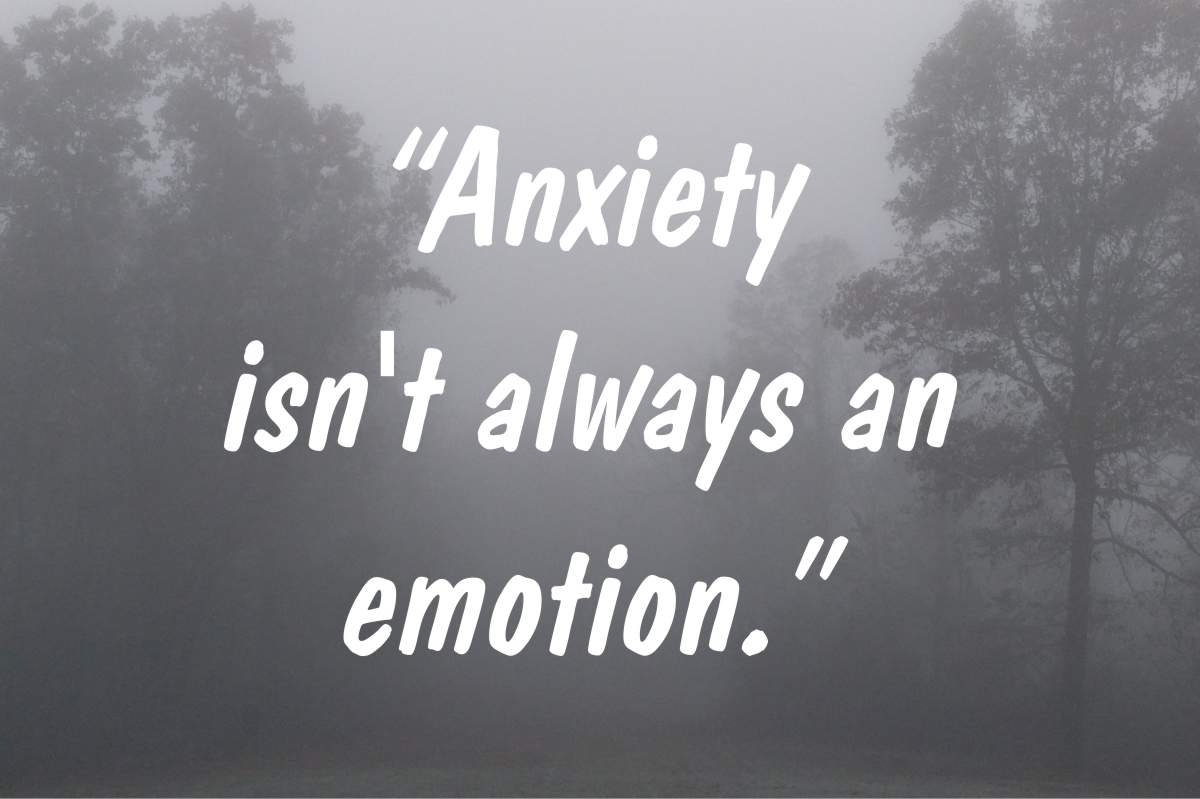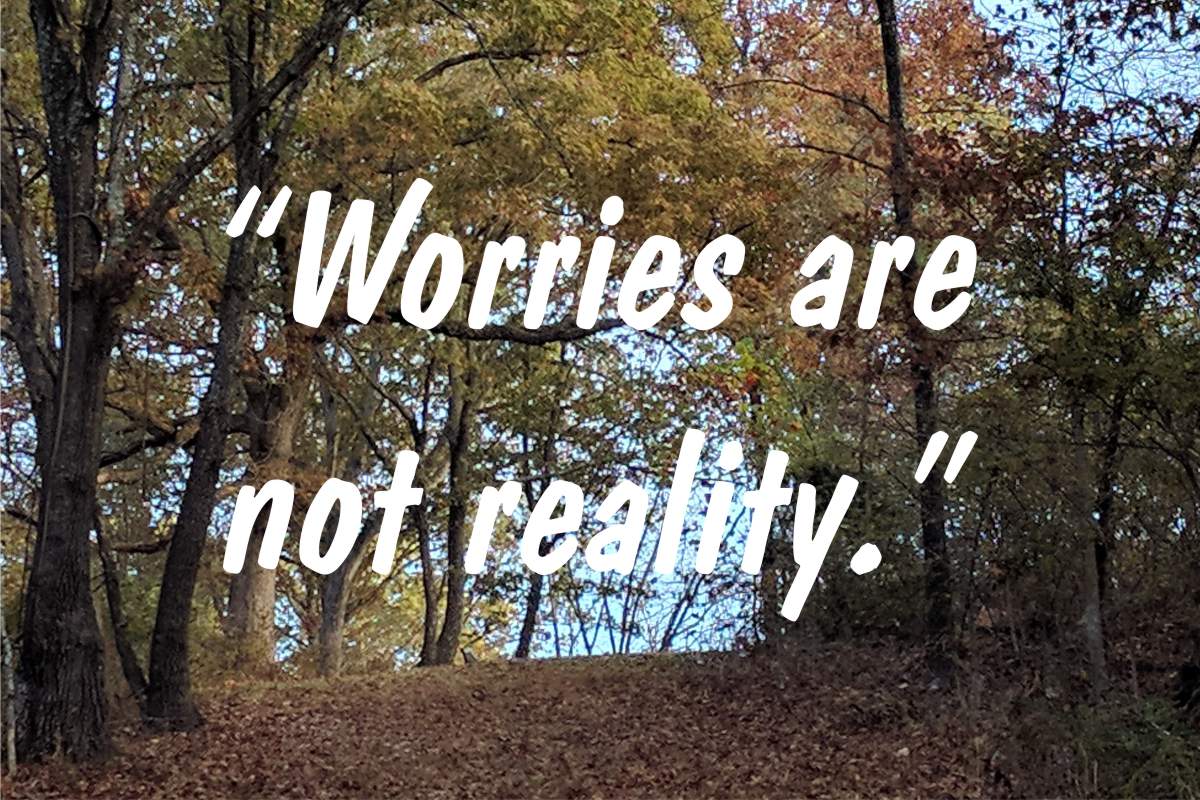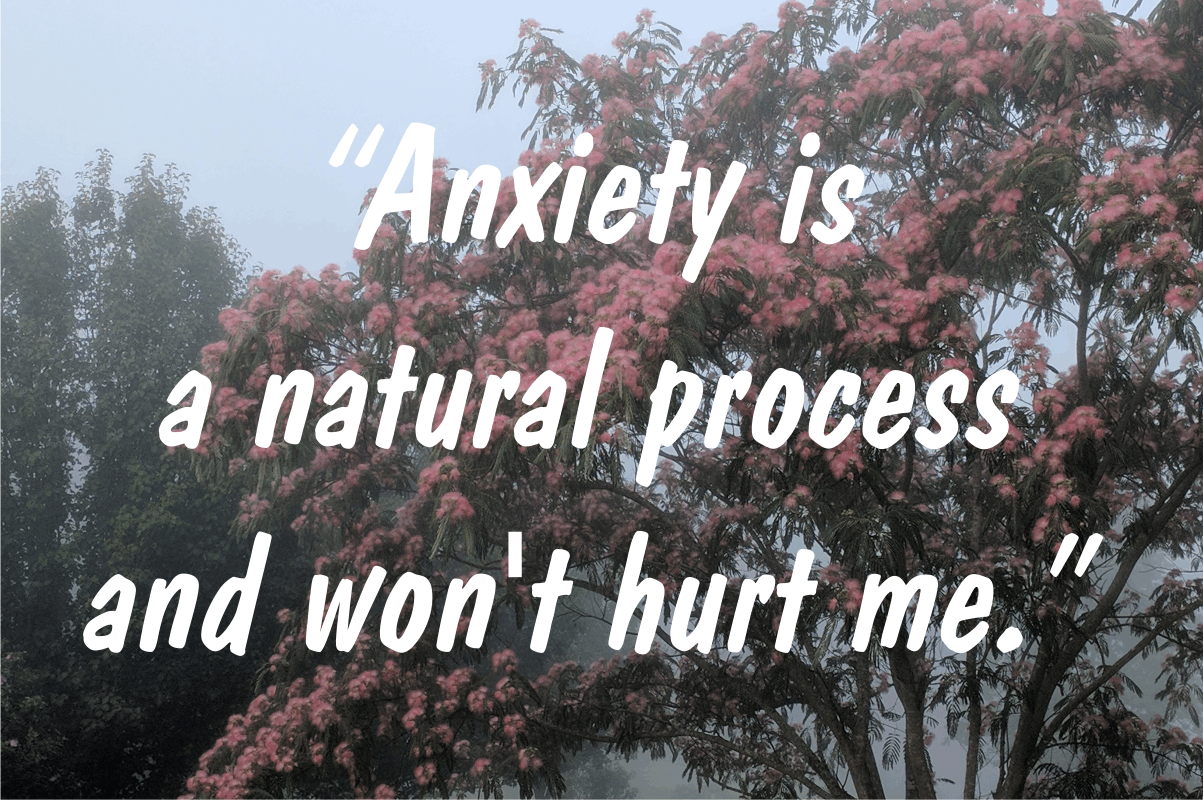










Popular Articles
Crazy-Makers: Dealing with Passive-Aggressive People
Why Are People Mean? Don't Take It Personally!
Struggling to Forgive: An Inability to Grieve
The Secret of Happiness: Let It Find You (But Make the Effort)
20 Steps to Better Self-Esteem
7 Rules and 8 Methods for Responding to Passive-aggressive People
What to Do When Your Jealousy Threatens to Destroy Your Marriage
Guide to How to Set Achieveable Goals
Catastrophe? Or Inconvenience?
Popular Audios
Audio Version of Article: Crazy-Makers: Passive-Aggressive People
Audio Version of Article: Why Are People Mean? Don't Take It Personally!
PsychNotes February 2018
by Monica A. Frank, Ph.D.
Clinical and Sport Psychologist

Index
Previous
Next
15 Coping Statements for Panic and Anxiety
Coping statement #4: “When anxiety is emotional, listen to it.”
Anxiety sometimes is a message. Many people who have problems with anxiety are so caught up in their fears of it they don't truly receive the message of the anxiety. As a result they are unable to resolve the problem the anxiety is trying to illustrate.
For instance, I had a client who had a fear of driving long distances, or even riding with someone, due to having panic attacks while traveling on a highway. When we explored this I found that it started when she went to visit her family who lived a couple hours away. Although she didn't want to acknowledge it, she had a tumultuous relationship with her mother who tended to be very critical. Due to the panic attacks she was unable to visit her family. The panic attack was an emotional signal that she didn't want to visit her family and for her to resolve the panic she needed to accept that was okay.
Distinguishing whether anxiety is physical or emotional and the message it is trying to convey can help resolve the anxiety. Some common messages: Read more...

15 Coping Statements for Panic and Anxiety
Coping statement #3: “Anxiety isn't always an emotion.”
Anxiety is body arousal which can be due to any number of triggers. For many people with anxiety, they become confused about the anxiety when it doesn't manifest in its usual way. Frequently I've had clients I treated for anxiety who were managing their anxiety well but had a sudden flare-up they didn't understand and which caused additional distress: “I don't really feel anxious about anything, why am I having these symptoms?”
When I explore with them recent changes or possible triggers, we often discover there are other reasons for the symptoms. The reason there are many triggers for anxiety symptoms is because the symptoms are due to the arousal of the autonomic nervous system (ANS). The ANS is a natural system of the body when the body feels threatened or in danger--it prepares us to react to the threat. To understand this further, read: A Brief Primer on the Biology of Stress and How CBT Can Help.
Many times when my clients have anxiety symptoms they don't understand they become even more anxious due to the concern about why the symptoms are suddenly occurring. Sometimes just knowing the reason for the symptoms can be reassuring. By understanding your body you can tolerate the symptoms better and/or decrease the symptoms. Some of the possible triggers: Read more...

15 Coping Statements for Panic and Anxiety
Coping statement #2: “Worries are not reality.”
Some people spend a considerable amount of time focused on “what if” types of worries. “What ifs” are different from worries about an actual event. “What ifs” refer to the constant reviewing in your head of possible negative events or outcomes. These thoughts aren't evaluated for probability or importance or solutions, but only serve to maintain a heightened state of anxiety.
A coping statement such as “worries are not reality” can be useful if your worries meet the following conditions:
1) Unlikely. What is the actual probability? Something “could” happen is true for a 10% chance or for a 90% chance but one is a more realistic concern. Worrying about someone breaking into your home and harming your family when you live in a safe neighborhood and have taken proper precautions is a waste of energy because it is unlikely. Read more...

15 Coping Statements for Panic and Anxiety
Coping statement #1: “Anxiety is a natural process and won't hurt me.”
For those with anxiety disorders, Panic Disorder especially, the anxiety symptoms feel so out-of-control it seems that something must be terribly wrong. As a result, they become fearful of the anxiety symptoms thinking they might be having a heart attack or some other physical ailment, will faint and hurt themselves, or will lose control in some way. The obsessive focus on even minute expression of symptoms due to these beliefs cause increased anxiety and even panic.
Frequently, those with these beliefs are not very in tune with their physical self because such body awareness can trigger the fears. This fear of bodily sensations can cause them to reject useful management tools such as breathing methods or relaxation. Such tools rely on heightened awareness of the body which can be uncomfortable initially. Read more...

PsychNews
Links to news articles based on psychological research:
More links...

Passive-Aggressive Example: Brother Manipulating Mother to Hurt Sister
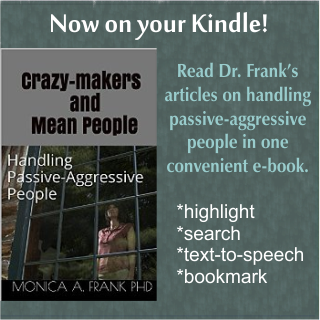
Question: I have a brother who has always been lagging in studies compared to me. My father (who, by the way, has severe aggressiveness and an inferiority complex) would constantly praise one of us while belittling the other--like mocking my height and mocking my brother for his academic performance. I would never bother about those comments but my brother took them seriously so has been indirectly jealous of me.
My mom has a soft spot for my brother because he would often cry and complain to her whenever he was being mocked. She has always been fond of me and very supportive until recently. But lately my brother is been making annoyingly passive-aggressive (PA) statements towards me in front of my mom.
For instance, we were having ice-cream with different flavors yesterday. I finished mine and my mom walks in and suddenly my brother offers a portion of his ice cream to me (I don't like that flavor). When I gently refuse he makes a sad face before my mom and says, "she is upset with me again." I reply that I am not upset with him but that I simply don't like the flavor. He keeps on repeating it until my mom urges me to accept a part of the ice cream to prove I am not really upset.
And this is one such example. He constantly tells my mother secretly that I am always angry with him and not talking with him enough. My mom tells me this in private and advises me to talk with him. When I try to comfort him he ignores me.
The only thing bothering me is that my mom is talking to me less and believes I am torturing my brother. So, please tell me how to deal with this as I feel personally betrayed with the lack of love from my parents as well as my brother.








